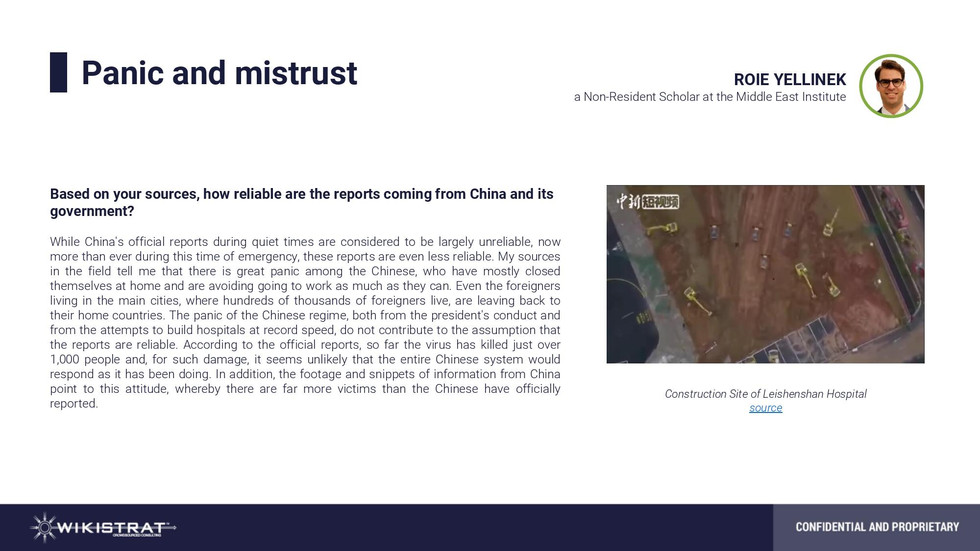Wikistrat Report: The Impact of the Coronavirus on China's Stability
- Feb 12, 2020
- 1 min read
Updated: Sep 19, 2023
During February 2020, Wikistrat explored with its China experts how China's stability has been impacted by the Coronavirus
On 31st December 2019, the World Health Organization (WHO) was informed of a cluster of cases of pneumonia in China, the causes of which were unknown. Wuhan city, located in Hubei Province of China, was identified as the epicenter of a new coronavirus (2019-nCoV), which caught China and the world by surprise. So far, 908 people have died and more than 41,000 have been infected, suggesting severe implications for the virus emergency status, both inside and outside of China. Indeed, cases have been confirmed in the USA, Canada, Germany, France, Italy, Australia, Japan, Vietnam, Cambodia, UAE, and other countries.
To contain the spread of the coronavirus, Chinese authorities put in place prompt measures locking down the city of Wuhan, developing a detailed response strategy, restricting public transportation, and closing schools and stores. However, criticisms and debates arose due to the lack of transparency of the Chinese authorities. The recent death of Doctor Li Wenliang, who tried to warn about the coronavirus before he was told by police to stop making false comments, sparked anger among members of the international community as well as in many parts of the Chinese population.
Failing to properly address the coronavirus crisis could result in grave consequences for China in the areas of trade, finance, the economy, and even socially and politically.
Below is the report that Wikistrat has compiled together with its China expert community.

































Comments